In 2007, Sturm, Ruger and Company introduced it’s first striker-fired pistol: the SR9. While the gun is no longer in the company’s line-up, it left an impression on the company’s handgun manufacturing that can still be seen today.
This is a brief history of the gun and to what it ultimately led.
Introduction
Ruger announced the SR9 at the 2007 National Association of Sporting Goods Wholesalers expo. The gun immediately garnered a lot of attention as it was a significant departure from the company’s existing handgun line.
To start with, the SR9 was the company’s first striker-fired pistol. By 2007, many firearm companies offered a striker-fired pistol. Glock revolutionized the market in the 1980s, but Ruger did not jump onto the bandwagon for nearly 30 years.
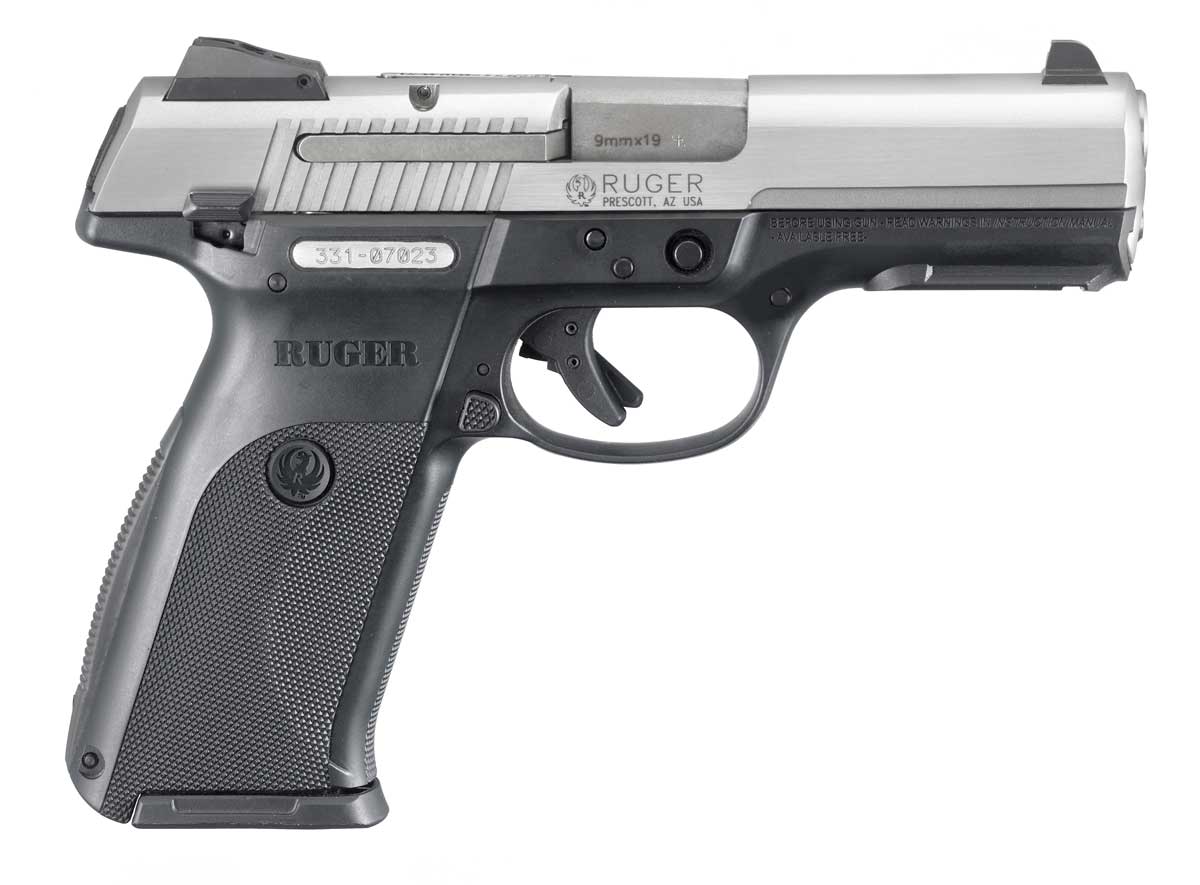
Ruger used a glass-filled nylon frame for the SR9. Ruger manufactured firearms with polymers prior to this, but the frame was a stark contrast to the offerings from Glock and others.
Essentially the frame was a polymer reinforced with fiberglass to be extremely tough and durable. In the hand, the frame seemed more solid and less “plasticy.”
Don’t get me wrong, I like the Glock line (as well as other polymer guns) – but the SR9 felt more refined. Mind you, subjective observations do not impact reliability. They can, however, impact sales.
SR9 Features
The original SR9 compared favorably to a Glock or M&P handgun. It was a full-size gun and not compact. Even so, the pistol was moderately thin for a duty-sized pistol and could be used for concealed carry with a good holster and belt.
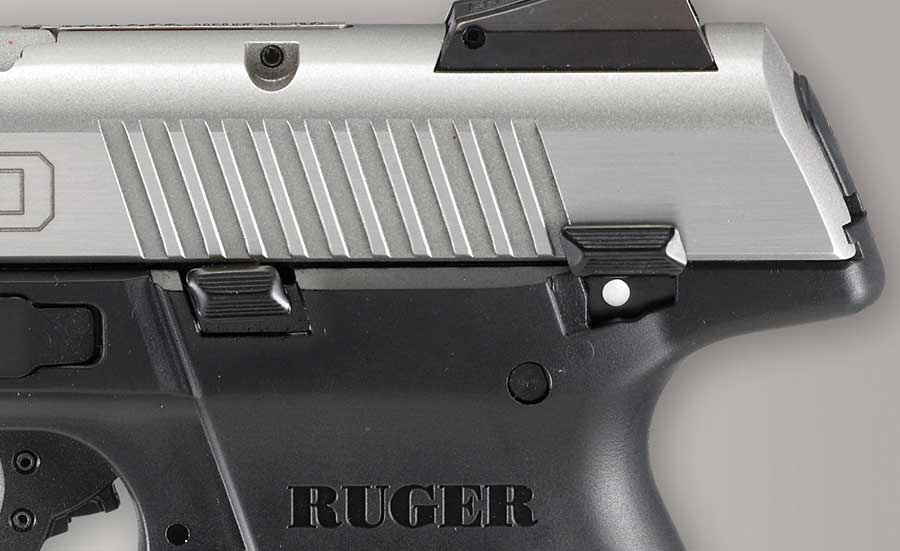
Ruger was known for bulky, heavy handguns like the P90 pistol. While the P90 was slightly wider than the SR9, it was almost half a pound heavier. Unloaded, the SR9 weighed 26.5 ounces.
The handgun was initially offered in 9mm (9×19), with other calibers being introduced at a later date.
Full capacity magazines held 17 rounds, which is adequate for both personal defense and law enforcement. For less-free states, ten-round magazines were made. It is not known if the company will manufacture stupid-low-capacity mags for New York.
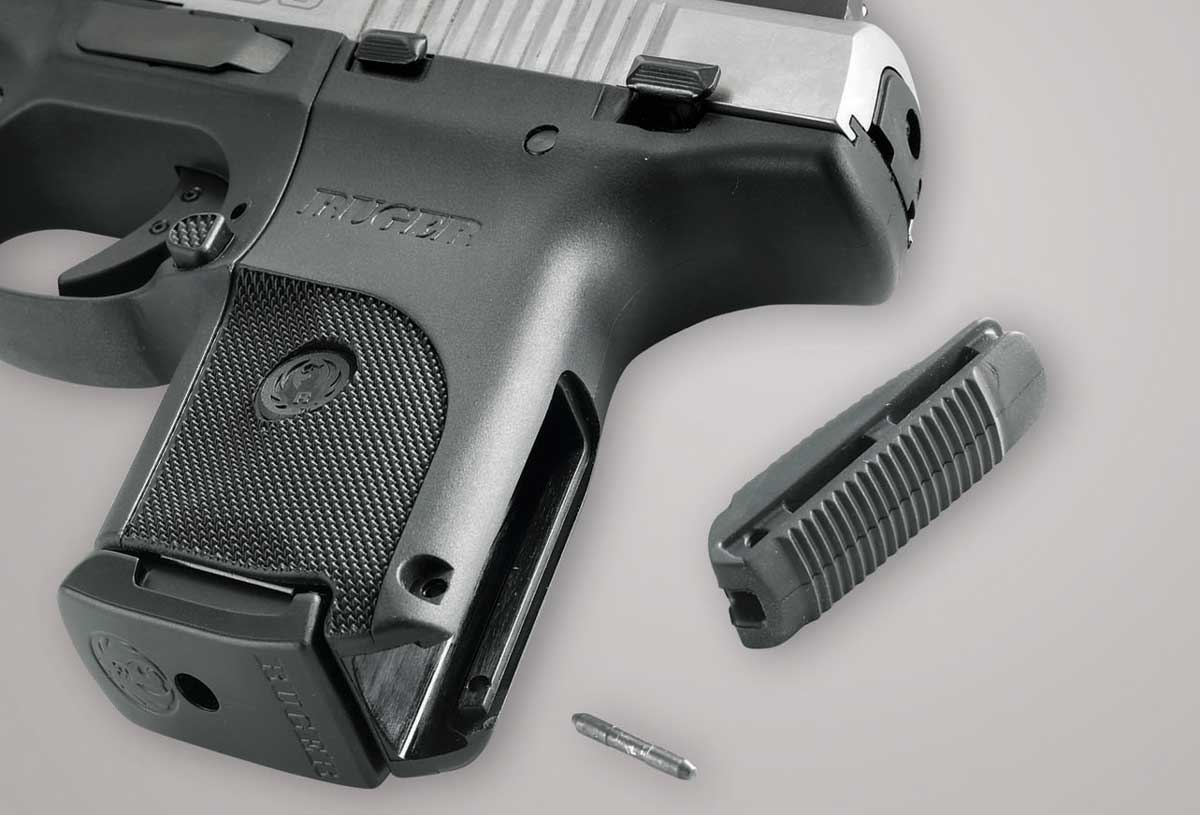
Like a growing number of pistols of the era, the backstrap on the frame was removable. This allowed the shooter to adjust the overall circumference of the grip to best fit his or her hand.
According to Ruger, the trigger pull was classified as double action only. Trigger pull weights were set at the factory to measure 6.5 pounds.
If you like thumb safeties, the SR9 had one. However, the safety seemed small and not as easily manipulated as those on a 1911 pistol. However, the thumb safety was ambidextrous.
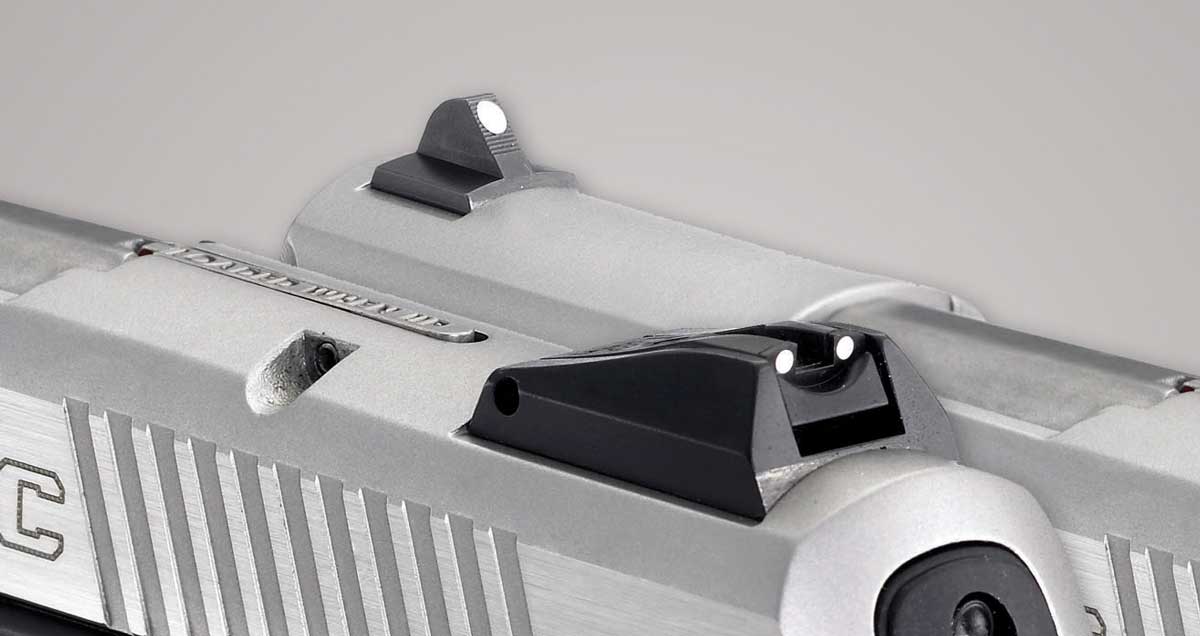
Ruger designed the SR9 with an ambidextrous magazine release. This set the company up for a positive reception from left-handed shooters. I never saw the company make a significant marketing push on these features, so I’m unsure if they were ever a factor in market share.
For additional safety, Ruger included a trigger safety, striker-block and magazine disconnect on these pistols. However, a problem with the guns failing drop tests would later prompt a recall (more information below.)
The SR9 also featured a visual and tactile loaded chamber indicator.
A standard accessory rail was molded into the frame for the addition of a weapon light or laser aiming device.
SR9 Specifications
Excluding the variations shown below, the SR9 line shared the same specifications.
| Caliber | 9mm |
| Magazine Capacity | 17 rounds (10 round optional) |
| Barrel Length | 4.14″ |
| Weight (unloaded) | 26.5 oz |
| Height | 5.52″ |
| Width | 1.27″ |
| Sights | adjustable 3-dot |
| MSRP | $529.00 |
Variants of the SR9
Ruger provides many variations of a standard gun as customer requests come in. Sometimes that means the addition of a caliber or a color option.
The standard SR9 remained the same throughout its lifespan. However, the company offered both a compact version of the gun and one with a non-standard frame color.
Additionally, the company pulled an unusual move and produced a value-priced version of the gun. I cover all three of these below.
Additional Chamberings
While 9mm remains the most popular handgun cartridge in the United States, there are plenty of fans that prefer the .40 S&W or .45 ACP.
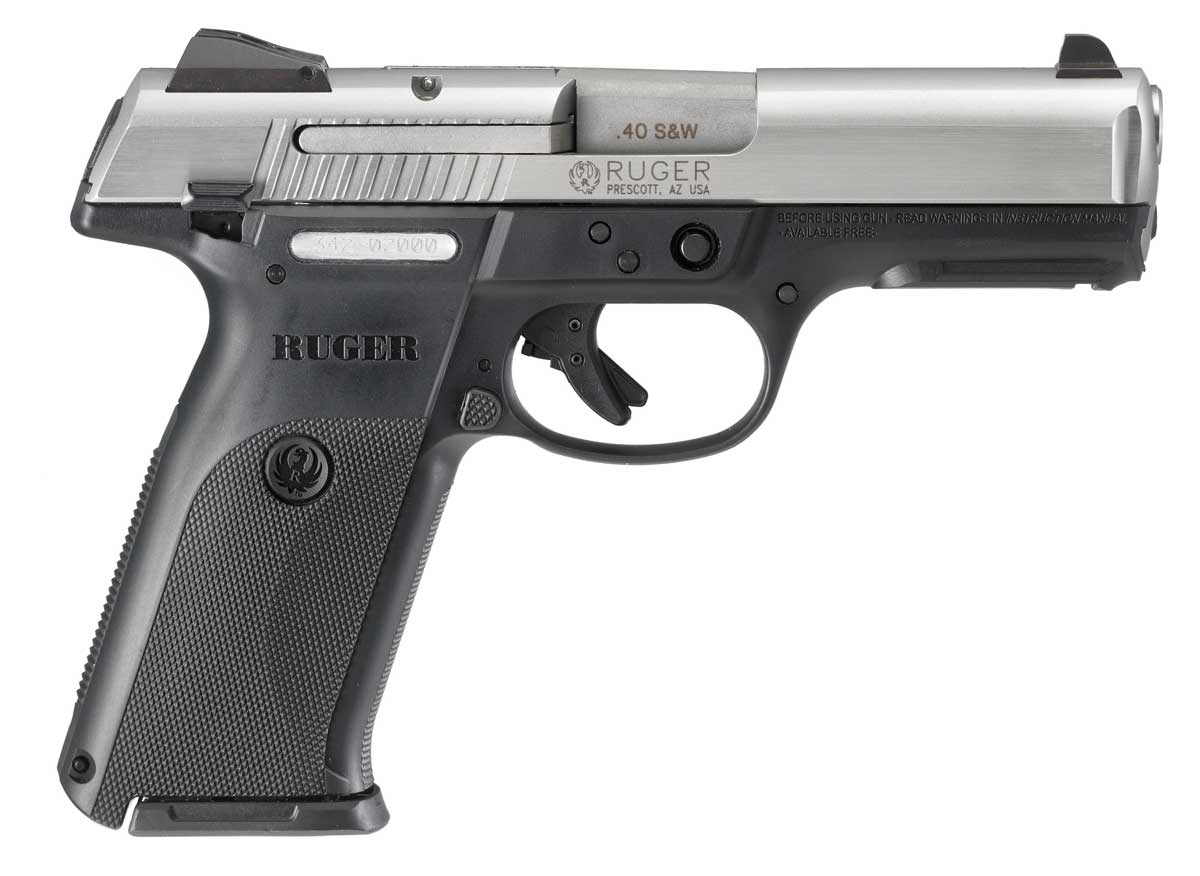
To meet the demand from these customers, Ruger introduced the SR40 and the SR45 handguns in .40 and .45 respectively. Make sure to read my articles about those pistols if you are looking for a more complete history of these guns.
SR9c – A Compact 9mm
While the SR9 made a lot of people happy, quite a number of shooters wanted a more compact handgun for concealed carry. Enter the SR9c.
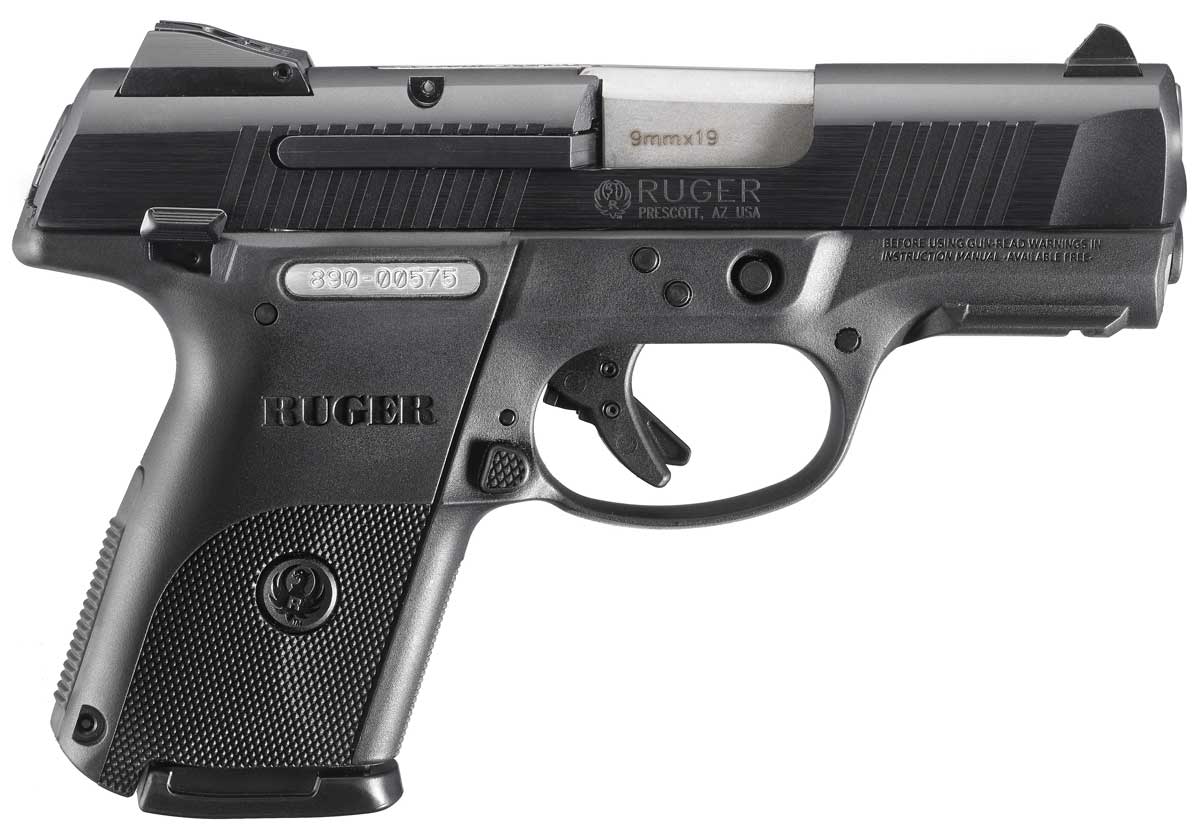
A compact version of the SR9, the SR9c retained most of the features from the larger gun – just with a chopped grip and barrel length.
The SR9c fired 9mm round from a 3.4″ barrel and fed from 10-round magazines. The mags fit flush. Additionally, the gun would also feed from the standard capacity (17 rounds) SR9 magazines. This made the gun an interesting choice as a back up gun.
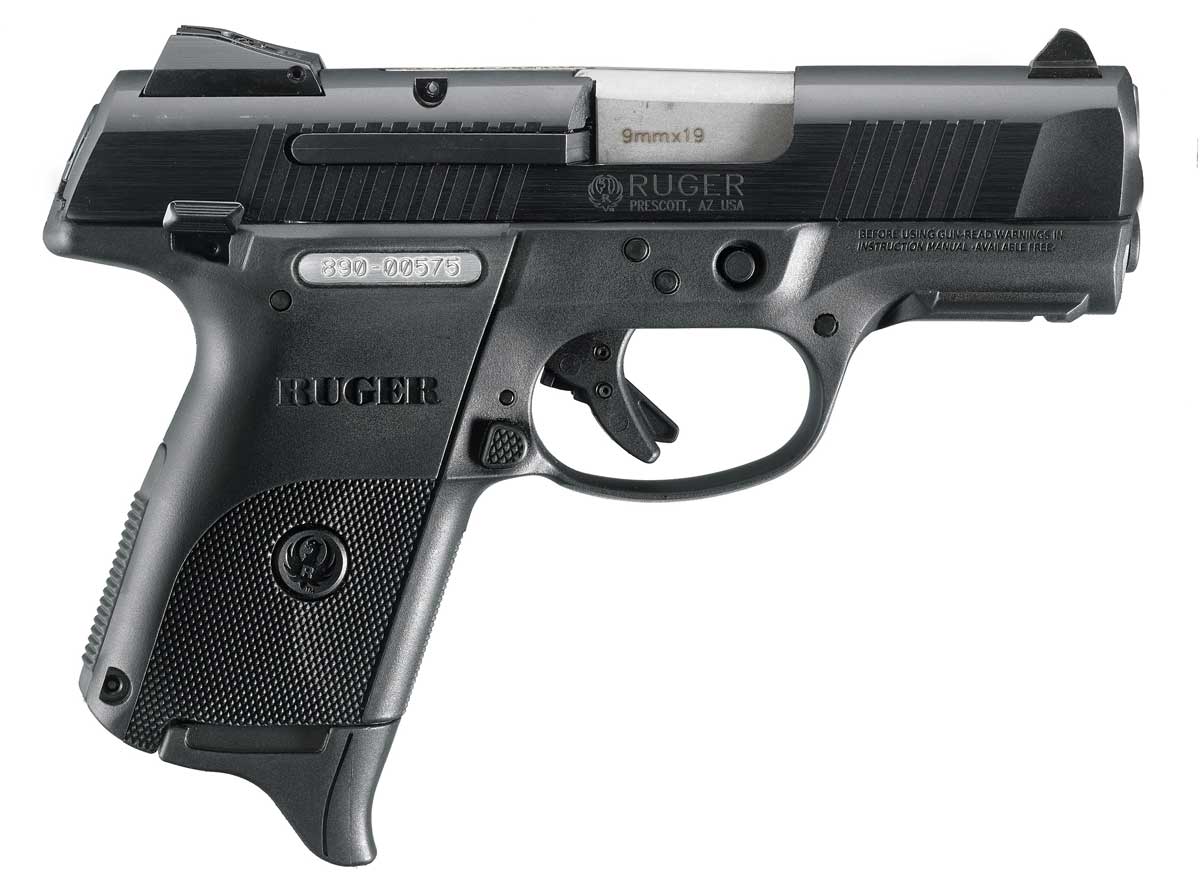
Ruger introduced the SR9c in January of 2010 – a few days ahead of the SHOT Show. The handgun remained in the company’s catalog until the entire SR9 series was droppped.
OD Green Variant
At the 2008 SHOT Show, Ruger expanded the SR9 line with the addition of OD green as a frame color option. The OD green guns matched perfectly with a black stainless slide for a good-looking combination.
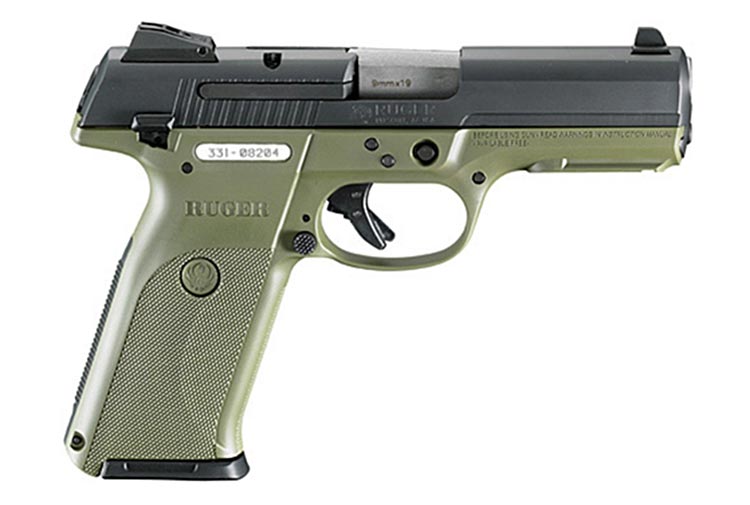
Functionally, the OD green SR9 was identical to the full-size SR9 pistols. They shipped with a pair of 17-round magazines. The guns had an MSRP of $565 at launch.
However, Ruger would also offer a limited capacity version that was authorized for sale in both California and Massachusetts. For these pistols, Ruger included two 10-round magazines. The suggested retail price on these was also $565.
It would appear that the olive drab green frame wasn’t terribly popular as the guns were quietly discontinued by the fall of 2011.
Value Priced Ruger 9E
By 2014, Ruger introduced the 9E pistol as a “value-priced” version of the SR9 pistol.
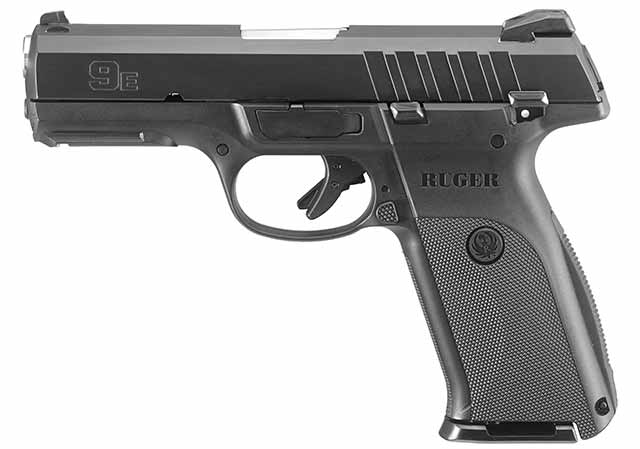
The 9E retained many of the SR9 features, but used fewer machining processes on the slide to reduce the manufacturing cost. Consequently, the price tag was discounted $100 to a MSRP of only $429.
While the slide seemed more bulky, it foreshadowed what I think the American Pistol slide looks like.
The 9E The sights were fixed, three-dot sights that dovetailed into the slide. As with the original SR9, the 9E used an interchangeable backstrap to help fit the gun to a user’s hand.
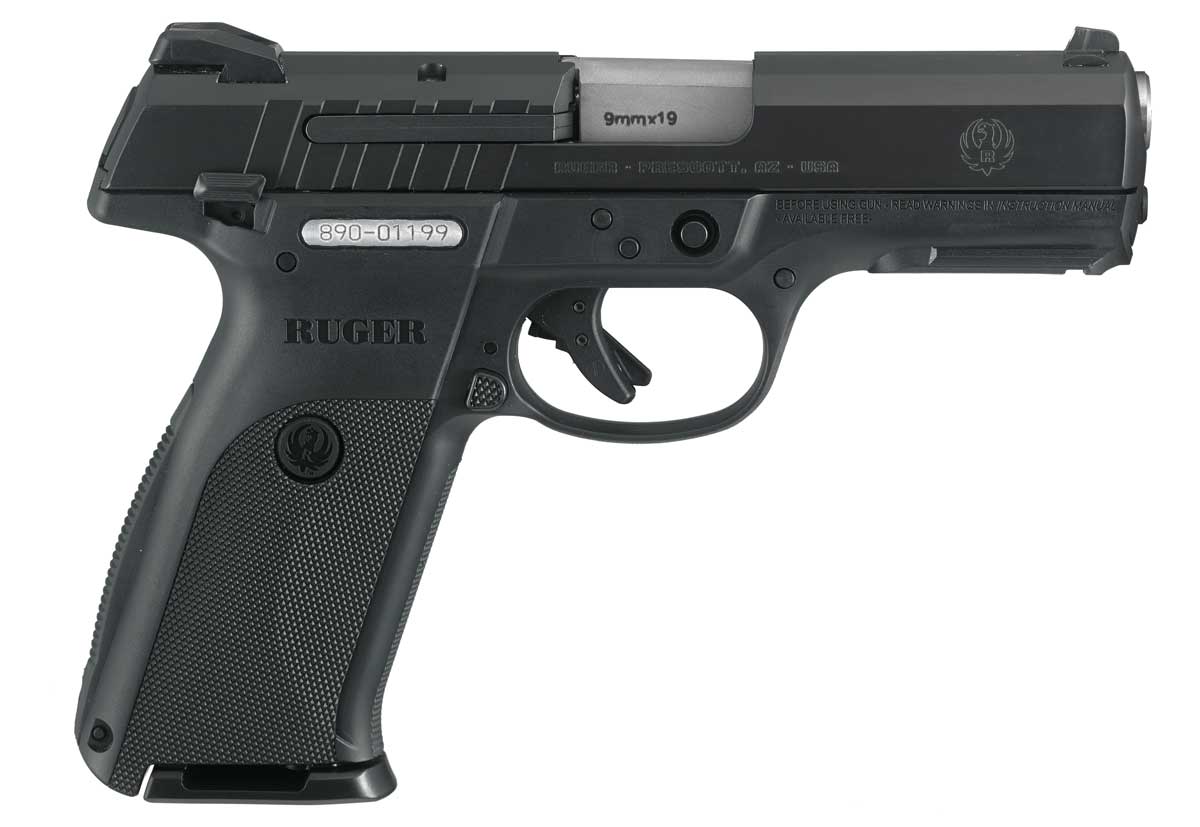
One of the nice features of the 9E was its ability to use standard SR9 17+1 capacity magazines.
How to Clean a Ruger SR9
Cleaning the SR9 is a straightforward process that is very similar to any other handgun. The only difference is in the take down of the SR9.
Field stripping the gun is easy. once you know what you are doing. To make it easier, here is a video of the process:
2008 Drop Safe Recall
As with any new design, unexpected bugs can sometimes pop up and need to be addressed. It happens with all goods from firearms to pickup trucks.
In 2008, Ruger discovered a problem that allows the SR9 to unintentionally discharge if it were dropped in a specific way. Ruger immediately addressed the issue and started a recall of all affected handguns.
As part of the upgrade, Ruger redesigned the trigger assembly so that resulted in a truly drop safe pistol. A side benefit of this effort was that overtravel was substantially reduced. Further, the overall length of the trigger pull was noticeably reduced.
Ruger also upgraded the magazine latches, magazine disconnect and striker blocker while the pistols were in for service. As the company’s first striker-fired pistol, it would appear the company was still learning the ins and outs of the system.
Serial Numbers & Production Dates
Ruger provided serial number ranges for the years of production on the SR9 and SR9c pistols. This information is below.
Ruger states that some serial numbers are manufactured out of order, and the year of manufacture does not always mean year the gun shipped for sale.
Ruger SR9 Serial Numbers
| Year of Manufacture | Starting Serial Number |
| 2007 | 330-00000 |
| 2008 | 330-12387 |
| 2009 | 330-46283 |
| 2010 | 331-01365 |
| 2011 | 331-21626 |
| 2012 | 331-44819 |
| 2013 | 331-82340 335-00000 |
| 2014 | 335-21760 |
| 2015 | 335-71631 |
Ruger SR9c Serial Numbers
| Year of Manufacture | Starting Serial Number |
| 2010 | 332-00000 |
| 2011 | 332-46410 |
| 2012 | 333-09856 |
| 2013 | 333-74840 |
| 2014 | 334-56550 |
| 2015 | 336-12960 |
The manufacturing year information ends with 2015. It is unknown at this time if the company continued production after 2015, or if the company amassed an inventory such that it was able to sell the guns through 2019 without additional manufacturing.
Last update: May 16, 2021
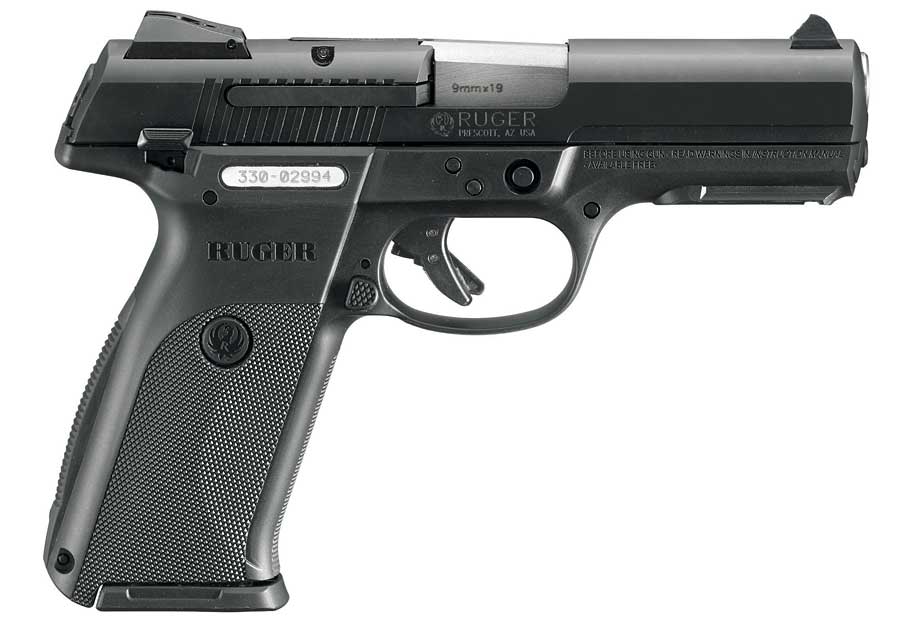
3 replies on “History of the Ruger SR9 Pistol”
Have had my sr9 two months, shot about 50 times..so far it is very stiff to jack, magazine hard to load , shells hang-up going in cylinder once in a while @ has a hair trigger.I hope that the recall will solve the problems
I bought mine today and put over 150 rounds in it immediatly after the inital cleaning. (lots of oil) It was awesome! I had no issues with a hair trigger, or shells hanging up. 1 of the magazines was a little difficult to load, but I assume that will get easier with time. Accuracy was great, and recoil was better than most 9mm I have fired.
I have a ruger sr9 with a flashlight on the rail. I can’t find a holster for it.